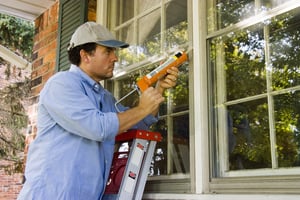In a world where businesses prioritize security and trustworthiness, background checks have become...
The Impact a Contractor Can Have on Your Reputation & Brand
Can you afford to take the risk?
Risk is always a factor when you employ somebody to work closely with a customer—particularly in the customer’s home. The risk is minimized when your company employs staff you have vetted and chosen for the role, but many companies rely on third-party contractors to carry out services on their behalf. Perhaps you can trust them to carry out the work to professional standards, but what happens when that trust is misplaced? What happens if the individual completes the work to a poor standard or poses a genuine risk to the customer?
Here we outline some cases where bad behavior by a third-party contractor resulted in dire consequences for the unsuspecting customers. We discuss the effects this behavior had on the relevant companies, and we explain how introducing and maintaining an industry-standard background might mitigate this risk.
Best Buy Calls for Background Check Legislation after Negligence Lawsuit
On August 19, 2019, 75-year-old Evelyn “Evy” Udell opened the door to two men delivering a washer and dryer she had bought from a Best Buy Store. Police say she died after one of the delivery men doused her with a liquid chemical and beat her severely. Her family has since filed a negligence lawsuit against the retail chain and the two delivery firms they work with, J.B. Hunt and XM Delivery. The suit claims the companies did not carry out proper background checks on its workers.
Best Buy issued a statement calling for legislation to require background checks across the retail industry, pointing out that “background checks have long been required by Best Buy” and that the company was working with contractors to ensure such checks are “up-to-date and are done on a re-occurring basis.”
The tragic incident illustrates that, even when a company requires background checks, steps need to be taken to ensure that the individual who ultimately provides the service is background-checked to an adequate standard.
“It may not be your fault, but it’s still your reputation…”
Uber Forced to Tighten Background Check Process
Even if your company does have a background check requirement for contractors, it might not be enough. For years, drivers who wanted to work for the ride-sharing giant Uber had to undergo background checks before working for the platform, but the company still faced numerous allegations of driver violence or risky behavior. This is because the company did not track later violations or issues once a driver passed the initial check. Now, the company is testing a system of real-time collection of data to ensure it is notified if a driver is newly charged with a criminal offense. It is hoped that this new continuous checking process will improve the screening process, but, according to undercover CNN reporters, as recently as May 2019, an alleged Somali war criminal was working as an Uber driver. Yusuf Abdi Ali’s work as an Uber driver raises questions about the thoroughness of the platform’s background checking process.
The Gig Economy Presents a New Challenge
The rise of gig worker platforms raises new concerns about the safety and quality customers can expect from contractors. HomeAdvisor.com is a well-known site that gives consumers access to local home improvement pros, whom it screens and approves for appropriate licenses, but one couple who used it claims it led them to a contractor who took their money without completing the project.
James and Katie Chou, from Nassau County, paid Empire City Outdoor Living $6,000 to build an outdoor kitchen and fire pit after viewing the contractor’s “immaculate” reviews on HomeAdvisor. The site had awarded the contractor an almost perfect rating, as well as claiming it was “screened and approved” and a “Best of 2018 winner.” Empire City’s application for a home improvement license had been turned down by Nassau County two years before, however, and it was being investigated by the county for four separate complaints.
Although HomeAdvisor responded in a statement that it confirms state level licensing and obliges contractors to represent that they have the required trade licenses, the site’s fine print states that it “does not endorse or recommend the services of any particular Service Professional.” Nor is it required to: Gig economy companies are not obliged to verify any details posted by others on their sites, resulting in a stream of workers advertising their services without adequate vetting, certification, or licensing.
Outfits including Angie’s List, Task Rabbit, and Handy are among the gig worker platforms that run criminal background checks—but only on the principal listed, not on the specific worker hired to complete a project. Furthermore, background checks are only carried out at the time of application to the site and are not updated.
The Solution: An Industry Standard
The mortgage field services industry faced a challenging situation about a decade ago, when contractors hired to do inspection and preservation work at different homes were often required to provide background checks, but there was no consistency in the standards required and no proper vetting of the results. Field servicers often had to provide multiple background checks for different work providers, the work providers had no standard to base their assessments on, and homeowners still could not be assured that the person attending their home had been vetted properly.
In 2013, the National Association of Mortgage Field Servicers worked with Wells Fargo, First Advantage, and Aspen Grove Solutions to deliver a unified background check process that was adopted across the industry. This process captures individual clients’ compliance requirements in one universally adopted standard that helps ensure the quality and safety of the supply chain.
A similar approach was followed in 2020 in the insurance and restoration industry, when the Property Insurance & Restoration Conference adopted a Recommended Background Screening Standard. This standard was inspired by the mortgage field services industry approach, and it could be extended to industries including healthcare, transport, cleaning services, staffing agencies, and the gig economy. When companies and their contractors embrace a collaborative approach and agree to an accepted set of standards regarding background checks, both they and their customers enjoy the transparency and trust such a standard creates.
Interested in finding out more about the Shieldhub Standards? Contact Shieldhub today to discover how our technology can streamline governance, compliance and risk for you.




